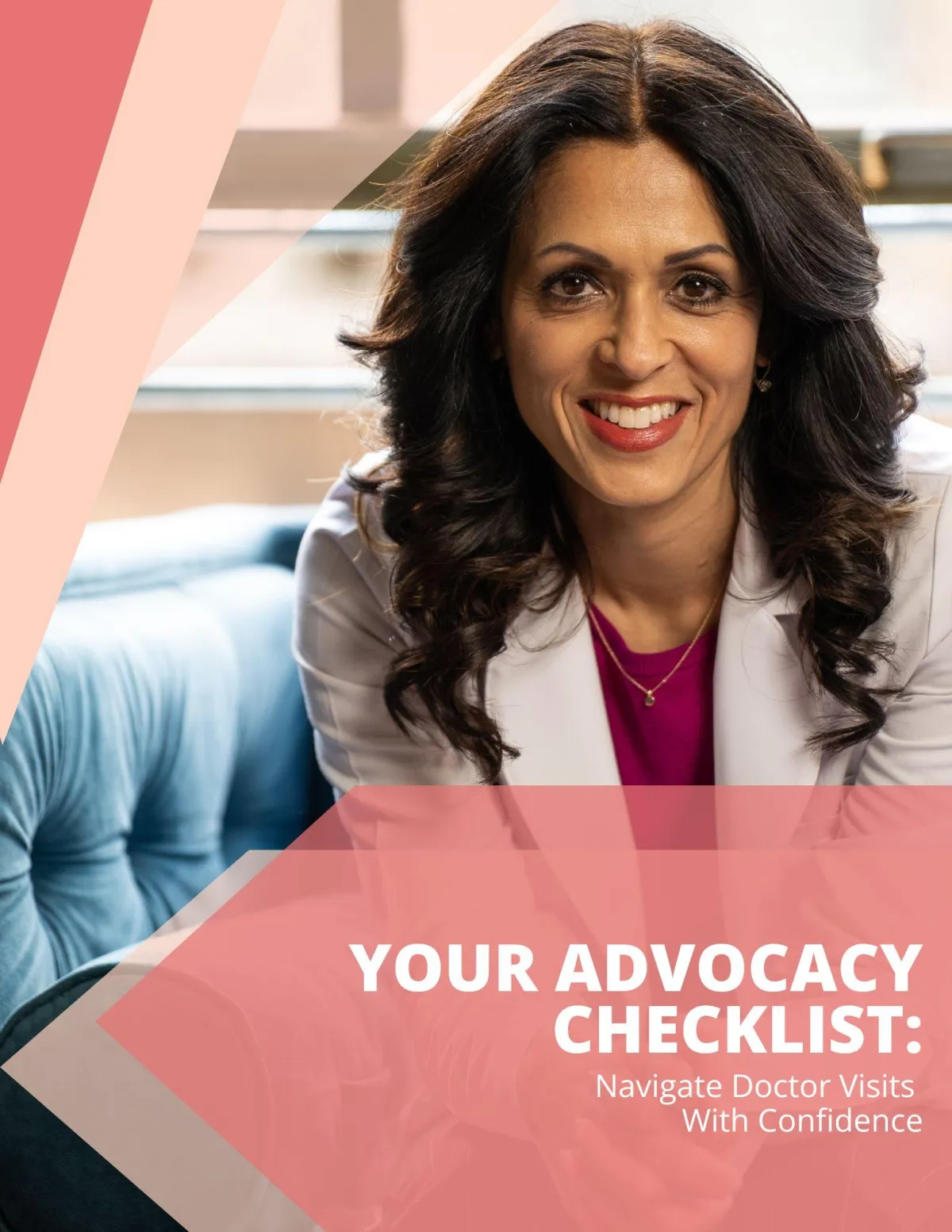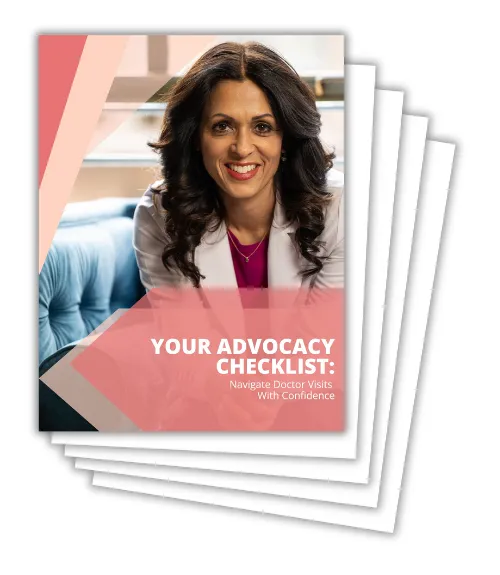Your Advocacy Checklist: Navigate Doctor Visits With Confidence

Are you walking into doctor visits feeling like you have to beg to be taken seriously? Have you been told “your labs look fine” even though you’re exhausted, foggy, and dealing with symptoms that are disrupting your life?
The reality is, most healthcare visits are rushed, checklist-style encounters that leave little room for the full story of your health and even less space for you to be heard.
Women everywhere are brushed off with “it’s just stress” or “that’s normal for your age,” when in fact, what’s really going on could be far more complex.
What’s missing is preparation, knowing exactly what to track, what to ask, and how to steer the conversation so your concerns can’t be dismissed or derailed.
That’s exactly why Your Advocacy Checklist exists to give you the tools, language, and confidence to walk into your next appointment ready to lead the conversation, get meaningful answers, and finally feel in control of your health story.
WHAT I WISH EVERYONE KNEW ABOUT HORMONE TESTING
This Essential Guide Will Show You…

How to walk into appointments prepared, confident, and impossible to dismiss, even in short, rushed visits
Which conversation-shaping questions open the door to better care and ensure your concerns are fully addressed
What to track and bring so your doctor finally sees the whole story, not just quick chart notes
When to insist on comprehensive testing and the exact ones to ask for to uncover hidden issues
Why “normal” labs can still hide what’s really going on in your body and delay effective treatment
How to follow up like a pro so your care plan actually moves forward and delivers real results
Dr. Tara Scott, M.D, FACOG, FAAFM, ABOIM, CNMP

Dr. Tara Scott is a triple board-certified expert in hormone health, integrative & functional medicine with over 20 years of experience. Known as the "Hormone Guru," she is devoted to helping women address hormonal imbalances through personalized, evidence-based care.
A Northeast Ohio Medical University graduate and an Associate Clinical Professor, Dr. Scott combines her medical expertise with academic leadership, mentoring future physicians, and directing women's health courses at the University of California Irvine. After years as a traditional OB/GYN, she transitioned to integrative medicine to uncover the root causes of hormonal issues, offering holistic and patient-centered treatments.
Dr. Scott educates and empowers women worldwide via workshops, courses, and resources through her platform, Hormone Guru. As a global speaker, industry consultant, and media contributor, she inspires change in women's healthcare, fostering wellness, prevention, and transformation for countless lives.
Have You Experienced Any Of These?

Stress & Anxiety

Low Mood & Irritability

Brain Fog

Sleep Issues

Chronic Fatigue

Feeling Overwhelmed

Weight Gain

Digestive Issues
HERE'S WHAT MOST WOMEN DON'T KNOW...
About Advocating for Your Health

“Doctors Know Best, So Don’t Push Back”
Doctors are often overbooked, and the more specific you are about your concerns, the more likely you are to get meaningful answers.
Many women hesitate to challenge a doctor’s opinion, but respectful, informed questions often open the door to better care. The Your Advocacy Checklist gives you the exact language and preparation steps to ensure your concerns can’t be brushed aside even in short, rushed appointments.

“If Labs Are Normal, There’s Nothing Wrong”
Standard labs rarely include comprehensive hormone testing, missing the reason for your symptoms.
Standard labs can miss early or subtle imbalances, and “normal” ranges don’t always mean optimal health. The checklist shows you how to present your symptoms, history, and supporting evidence so your doctor sees the whole picture, not just a lab report.

“Follow-Up Isn’t Necessary”
You deserve to have your concerns addressed which can be hard in a short appointment
Too many patients leave appointments without clarity or a plan because they didn't ask the right questions. Your checklist includes proven follow-up strategies so you can confirm next steps, track progress, and make sure your care moves forward instead of getting lost in the system.